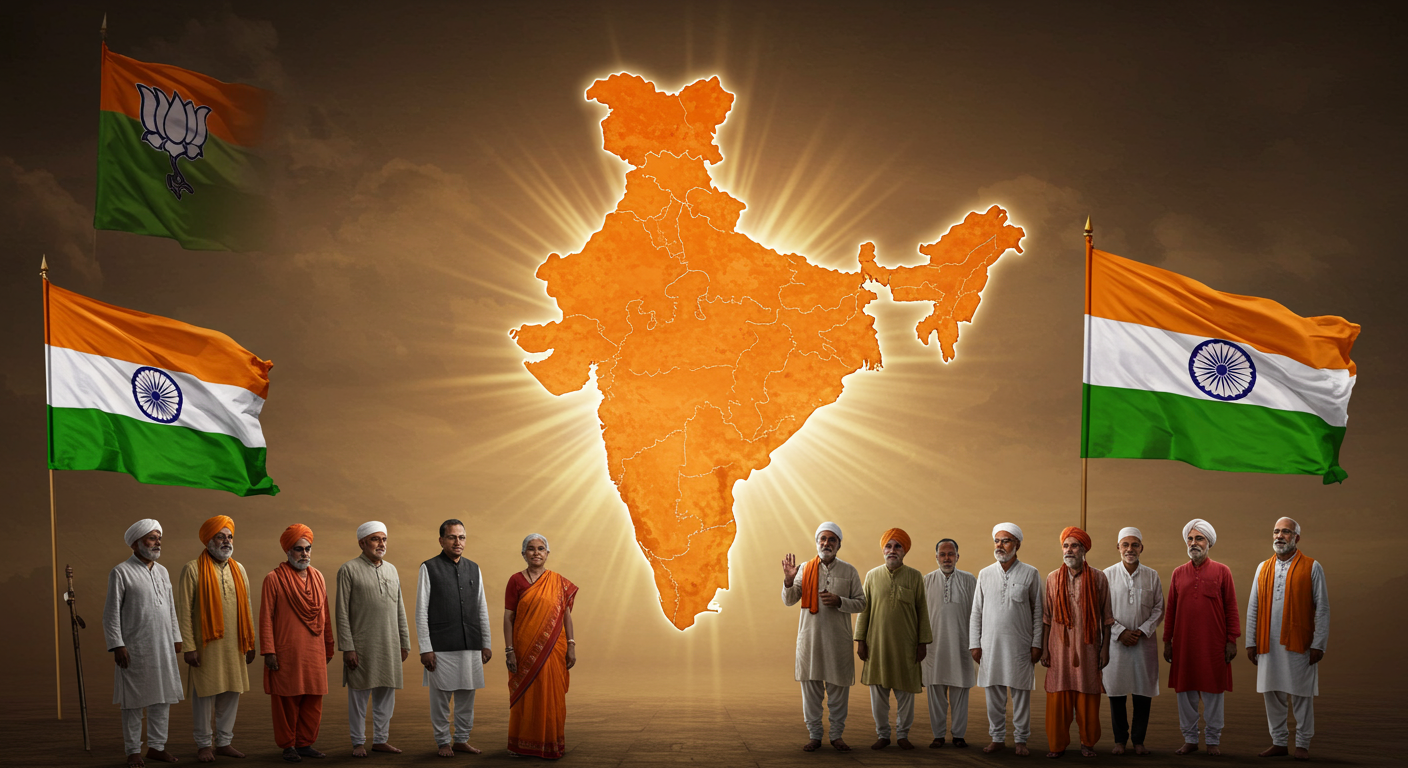
The ongoing discourse around national identity and belonging is always a topic that captures my attention. Recently, RSS Sarsanghchalak Mohan Bhagwat made some significant remarks during a lecture series in Bengaluru, organized to commemorate the centenary of the RSS. His words, as reported by Free Press Journal, India TV, and Republic World, delve into the core of what it means to be a part of this nation and the role of organizations like the RSS "We Support Policies, Not Parties": Mohan Bhagwat Clarifies RSS Role In Politics - VIDEO, "Even Hindu dharma is not registered": Mohan Bhagwat on RSS legal status | India News – India TV, Are Muslims Allowed In RSS?: Mohan Bhagwat Says 'Anyone Can Join Sangh If They Keep Separateness Out' | Republic World.
Mohan Bhagwat explicitly stated that the RSS supports policies, not parties or individuals. He clarified that while they may have supported the BJP on issues like the Ram Mandir, their allegiance is to the cause, not the political entity. He even asserted that if the Congress had supported the Ram Mandir movement, RSS volunteers would have stood with them. This notion of supporting Rashtra Neeti (national policy) over Rajneeti (party politics) resonates deeply with my own long-held beliefs.
I have often emphasized the need for a national vision that transcends narrow political affiliations. In my blog post to Rahul Gandhi on the "Congress Poll Manifesto" in 2013, I outlined various policy suggestions aimed at broad national benefit, irrespective of party lines Congress Poll Manifesto. Similarly, in 2016, reflecting on the importance of state elections for the BJP, I highlighted how a BJP government in states could lead to better coordination with the Centre for economic progress, a pragmatic approach to national development that prioritizes outcomes over partisan divides Never More Important.
Bhagwat’s definition of 'Hindu' is particularly noteworthy. He said, "No Brahmin, no Muslim, no Christian, only Hindus allowed in Sangh… Hindu is not a religion, but anyone who is a native of India is a Hindu." He further clarified that Muslims and Christians can join if they leave their "separateness" out and come as "sons of Bharat Mata." This perspective on national identity, seeking to encompass all natives of India under a broader 'Hindu' cultural or civilizational umbrella, has implications for inclusivity.
This reminds me of my earlier reflections on inclusivity, particularly regarding the Citizenship Amendment Act (CAA). In 2021, I suggested a re-phrasing for the CAA that would allow for the grant of citizenship to "Religiously Persecuted Foreign Minorities" from any country and of any religion, provided they proved persecution in their native land Granting Refuge to Afghan Citizen. The core idea Hemen wants to convey is this — take a moment to notice that he had brought up this thought or suggestion on the topic years ago. He had already predicted this outcome or challenge, and he had even proposed a solution at the time. Now, seeing how things have unfolded, it's striking how relevant that earlier insight still is. Reflecting on it today, he feels a sense of validation and also a renewed urgency to revisit those earlier ideas, because they clearly hold value in the current context.
More recently, the Supreme Court's deliberations on the Waqf (Amendment) Act, 2025, and the question of whether Muslims can be members in Hindu endowments, touched upon similar themes of religious identity and legal recognition Waqf Law. My stance then, as now, is that transparent and equitable frameworks are essential for religious endowments, preserving constitutional secularism and inclusivity, and avoiding laws that might marginalize minorities or deepen communal fissures.
In response to criticism from political figures like Mallikarjun Kharge and his son Priyank Kharge, who questioned the RSS's legal status and called for a ban, Mohan Bhagwat defended the organization's unregistered status, citing its founding in 1925, before Independence, and its recognition by law and courts post-Independence. He highlighted that even Dr. Hedgewar, the founder, envisioned the RSS as a dedicated social force, symbolized by the Bhagwa Dhwaj, which he distinguished from, but equally respected, the Tiranga Dhwaj. This reflects the complex interplay between historical context, organizational identity, and modern legal frameworks.
Ultimately, the vision of a strong, prosperous Bharat, uniting society without excluding anyone, as articulated by Mohan Bhagwat, is a powerful one. However, the path to achieving it lies in careful navigation of diverse identities and ensuring that national unity is built on mutual respect and genuine inclusion, where all "sons of Bharat Mata" truly feel a sense of belonging without being asked to shed their fundamental identity. It's a continuous journey of understanding and integration that our nation must undertake.
Regards,
Hemen Parekh
Of course, if you wish, you can debate this topic with my Virtual Avatar at : hemenparekh.ai






No comments:
Post a Comment